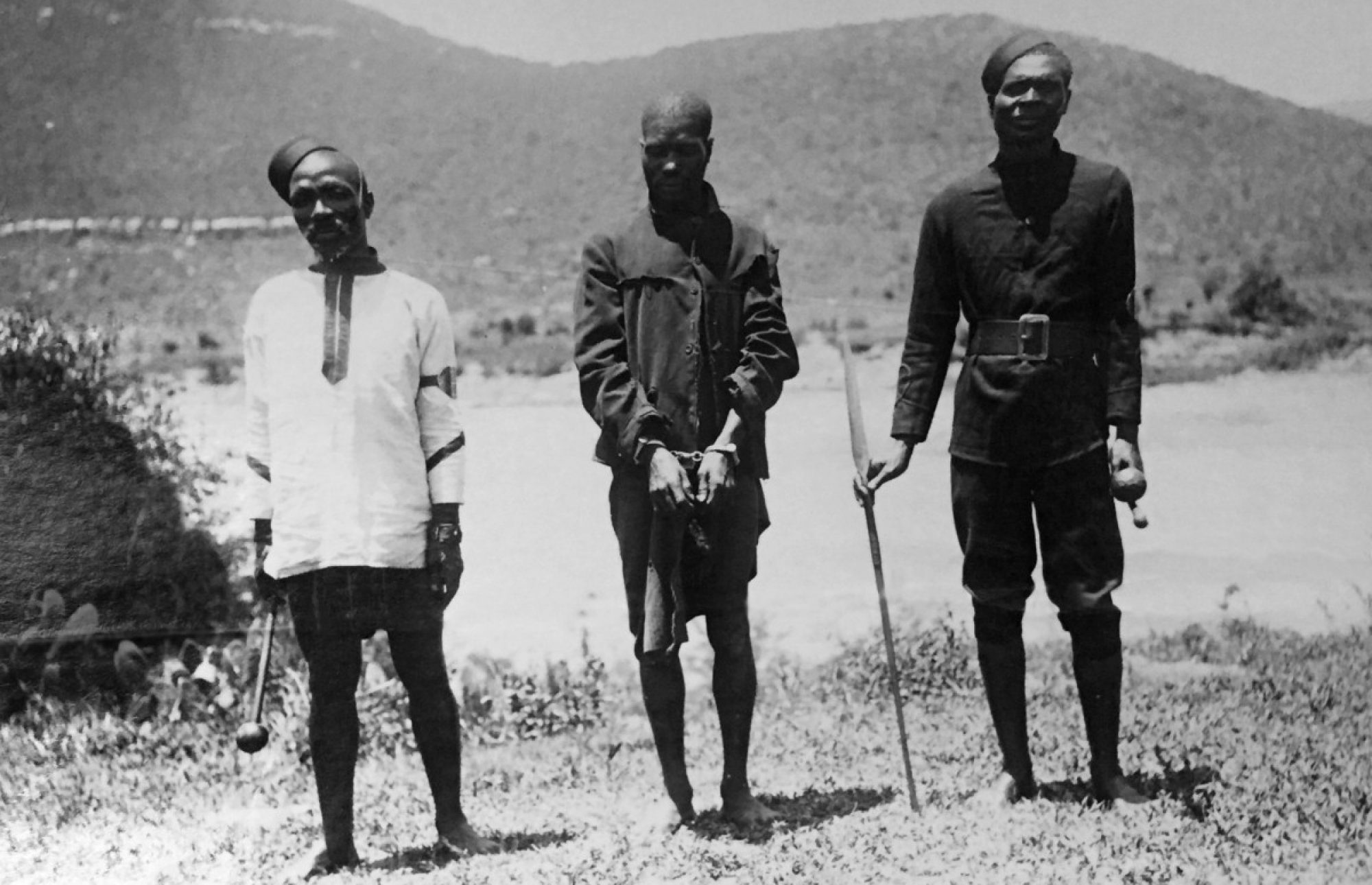What is the role of anthropologists and other social scientists in producing knowledge for political and military strategies, as described by Packer and alluded to by Stoler? What do you think this role should look like?
Week 12: The colonial condition and postcolonial futures
Instead of answering a question this week, come up with 2 to 3 questions of your own relating to The Wretched of the Earth that you would like to discuss in class. At least one of these questions should be open-ended (i.e., not a yes/no question). Pick discussion questions that you think will facilitate our analysis of the reading.
Week 11: Sites of resistance and states of exception
What image of the British justice system in Kenya does The Trial of Dedan Kimathi offer? Discuss the techniques Ngũgĩ and Mũgo use to convey this image.
Week 10: Rebellion, repression, and prosecuting empire
Choose a brief excerpt from the letters used as exhibits in the Kimathi trial. Discuss why the text you selected supports the cause of the prosecution and/or the defense in Dedan Kimathi’s trial.
Week 9: Decolonizing law and international institutions
What do Pedersen and Manela each suggest was significant about the post-World War I years in terms of colonial history? Do you find their arguments convincing?
Week 8: Enforcing law and order
How do Thomas and Chanock characterize police power in the contexts they discuss? What factors do they say shaped police actions in relation to certain groups and activities?
Week 7: Custom, crime, and courts
How do Maine, Sarbah, and Lugard suggest colonial administrators should deal with existing laws and practices—“custom”/“customary law”—in areas such as India and West Africa? Why do you think they make these suggestions?
Week 6: “Primitive” law and colonial order
What makes defining “law” difficult (in Hoebel’s words, “like the quest for the Holy Grail”)? Choose some examples of practices Miner and Malinowski discuss from Nacirema and Trobriand societies, and explain why these may or may not qualify as being “legal.”
Week 5: Slavery and the law through sources
Explain one way in which we can study Abina’s story through the lens of gender. How does doing so shape our understandings of colonial rule and its impact on societies such as those in the Gold Coast?
Week 4: Gender, slavery, and colonial law
What blurred the lines dividing “slave” and “free” status for Abina and for Juliana?
